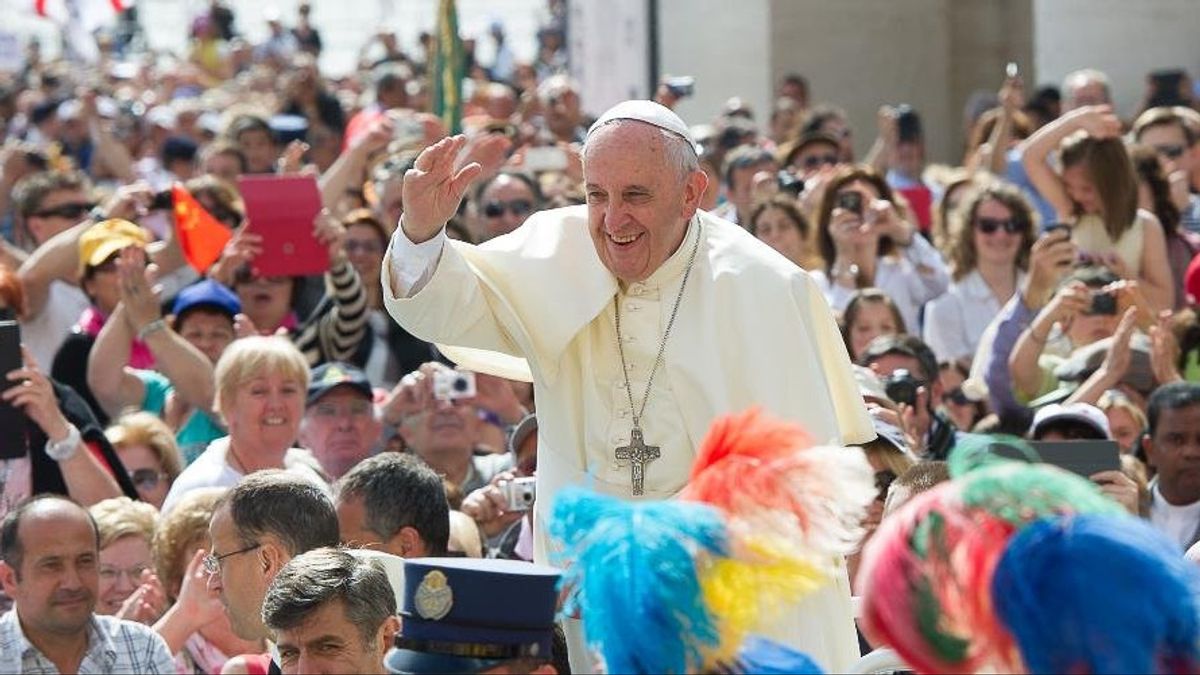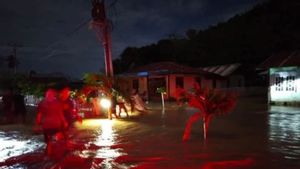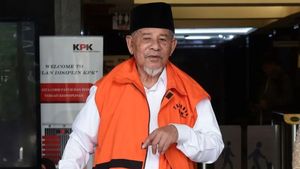JAKARTA - Civil unity for the same sex must be realized, Pope Francis said in a recent statement. This statement is important. Francis was the first pope to say something like this, implying his support for the lives of homosexuals. But, is it true that this statement can be interpreted as the full support of the Pope?
The Pope's statement was immortalized in a documentary film by Evgeny Alfineevsky entitled Fransesco. The film, which depicts the life and work of the Pope, premieres at the Rome Film Festival, Wednesday, October 21.
"Homosexuals have the right to have families," Pope Francis said in the film.
"They are children of God and have the right to a family. Nothing should be thrown away or made miserable for it," he added.
"What we have to make is a law on civilian unity. That way they are protected by law."
The Pope's statement drew many reactions. The association which actively campaigns for the presence of LGBTI people in Europe, ILGA Europe, welcomes the Pope's statement with caution.

"In a context where there is so much polarization and scapegoating of LGBTI people, who are often supported and instigated by religious leaders, Pope Francis' statements on same-sex unions must be welcomed and must be listened to with care," the organization tweeted on Twitter.
"We will be closely monitoring to see the extent to which that statement will be accepted by the churches and will bring real change to LGBTI people and their families."
Pastor James Martin, a Jesuit who has long struggled to build relationships with gays in the church praised Pope Francis' statement. He called it a "major advance regarding church support for LGBT people."
"The pope spoke positively about civil unity, also sending a strong message to places where the church has opposed the law," Martin said, quoted by Euronews, Thursday, October 22.
Different. Bishop Thomas Tobin of Providence of Rhode Island has demanded clarification from Pope Francis. Thomas even called the Pope's statement "clearly at odds with the church's old teaching on same-sex unity ... The Church cannot support the acceptance of a relationship that is objectively immoral," he said.
Green light?
The analyst and BBC correspondent for Rome, Italy, Mark Lowen presents his views on this situation. According to him, it is impossible to deny that this is the strongest statement of support ever conveyed by Catholic religious leaders.
However, Pope Francis' statement cannot simply be interpreted as full support for the lives of homosexuals. Mark Lowen offers two possibilities.
This could mean fundamental changes initiated by the Pope and will have a profound impact on the attitude of the Vatican. However, this could also be simply a spontaneous statement by a Catholic clergyman, which remains impossible for him to ignore the conservative and traditional doctrines of the church when pressed to take more concrete action.

In principle, Catholic teaching places the position of homosexuals as a human group that must be treated equally with dignity and respect. Homosexual orientation is not a sin, but homosexual behavior is definitely a sin.
A document released by the Vatican doctrine office in 2003 stated that the church's veneration of homosexuals "cannot necessarily lead to the approval of homosexual behavior or the legal recognition of homosexual unions."
In 2013, Francis also personally affirmed this view, that homosexuals are "forgiven" as long as they are still in the form of sexual orientation. "If someone is gay, but he seeks God and has good intentions, who am I to judge them?" said the Pope in 2013.
In that year Francis also called homosexual behavior an anthropological setback. This statement is recorded in the book On Heaven and Earth. In addition, Francis has also expressed his views on the adoption of children by same-sex couples.
He said, "there may be children affected ... Everyone needs a father and mother who can help shape their identity."
Move further back. While assuming the position of Archbishop of Buenos Aires, Argentina, Francis was a strong opponent of homosexual marriage. His most obvious attitude was when Argentina legalized same-sex marriage in 2010. At that time, Francis recommended the option of civil union as a substitute for same-sex marriage.
And about today's steps, Pope Francis is seen as not showing more concrete support for this issue. Doctrinal changes, according to Mark, are usually carried out in a more formal way and through a lot of internal debate. And that hasn't been seen in the Vatican.
The English, Chinese, Japanese, Arabic, and French versions are automatically generated by the AI. So there may still be inaccuracies in translating, please always see Indonesian as our main language. (system supported by DigitalSiber.id)









